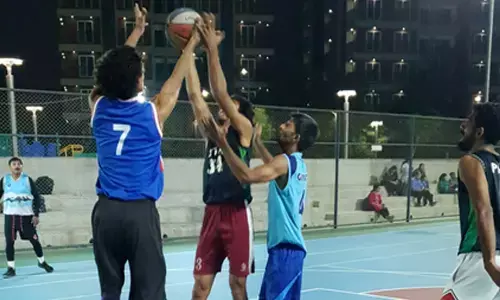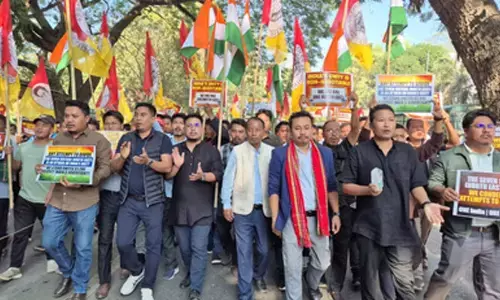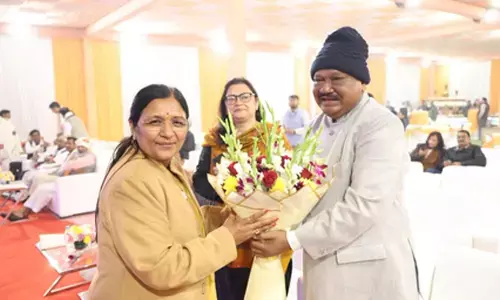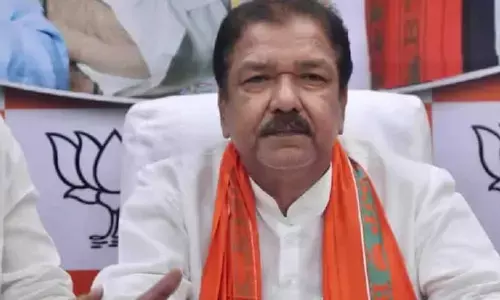'Research Internship' draft guidelines prepared by UGC, envisages two types of internship
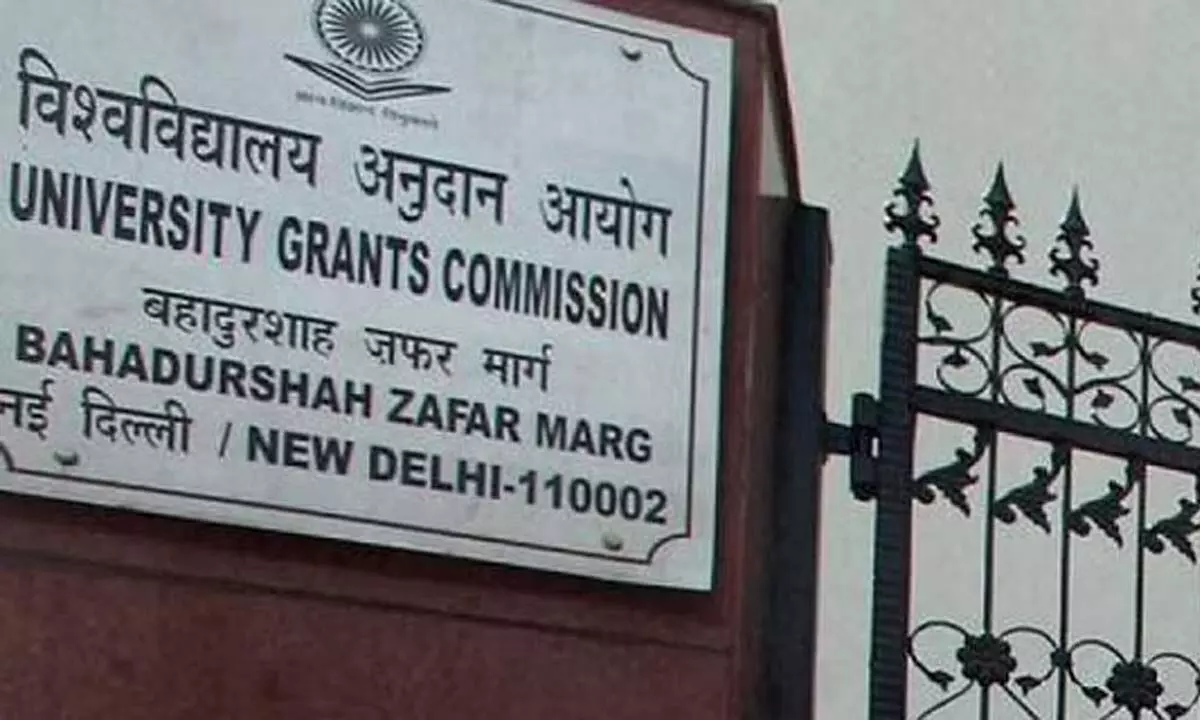
Image of UGC head office used for representational purpose
Competencies to be developed during internship, duration and slots of internship, exposure to a real-world work environment, quality assurance and caring for research intern.
New Delhi: The University Grants Commission (UGC) has prepared draft guidelines for 'Research Internship' with faculty and researchers at higher education and research institutions on the lines of new education policy.
The Commission has noted that research internship would be of two types -- a) internship to enhance employability of an individual student, b) internship to develop research aptitude of an individual student.
According to the draft, the newly introduced course structure in the NEP, 2020 envisages the integration of research component in degree programmes, and specifically for the four-year degree programme with bachelor's degree (research) has the fourth year focussed on developing research competencies in students.
"This calls for developing a system of offering research internships to undergraduate students with defined levels of competencies required for pursuing research. The framework would specify how the HEIs can support the interns as a provider or an organizer, how research organization or research center or laboratory at industry can support research internship as providers," it said.
"The 3-year degree and 4-year degree programme (research) will be operating strictly adhering with NEP specifications. Based on the higher education qualification level descriptors for Level-8, some of the competencies with research orientation should be attained by the students by studying the courses under the research ability enhancement courses (RAEC) and by undertaking the research internship project," it added.
Competencies to be developed during internship, duration and slots of internship, exposure to a real-world work environment, quality assurance and caring for research intern by parent HEI are among the key points of the guidelines.
"Each undergraduate student may also complete first research internship of 10 weeks duration after 1st year and second research internship of 10 weeks duration after 2nd year of graduate degree programme.
The student who has to go for 4-year degree programme with research will be required to complete research ability enhancement courses (REAC) during 7th semester and research project work or dissertation during 7th and 8th semester.
"A minimum 20 credits out of the required 160 credits of the 4-Year Degree Program. The internships of 8-10 weeks of 10 credits, after 2nd or 4th semester, will be mandatory for the students desirous of exiting with a certificate or Diploma, respectively. The continuing students may, however, undergo optional research internships after 2nd / 4th semester, to enhance their research capabilities, by engagement as interns in HEI/Research Institute/Industrial R and D labs," the guidelines said.
The guidelines stated objective is that institutionalisation of research at UG level will play a pivotal role in catalysing inter-disciplinary/ milti-disciplinary/ trans-disciplinary and translational research culture.
Apart from gaining multi-disciplinary skills, the UG level research expects to give students an exposure to the societal challenges through rural/ social internships and getting them trained for social innovations, familiarise them with research methods, analytical tools and techniques; train the students to writing research proposals, scientific reports, presentations, and/ or manuscripts for publication as well as promote academic, professional developments.









